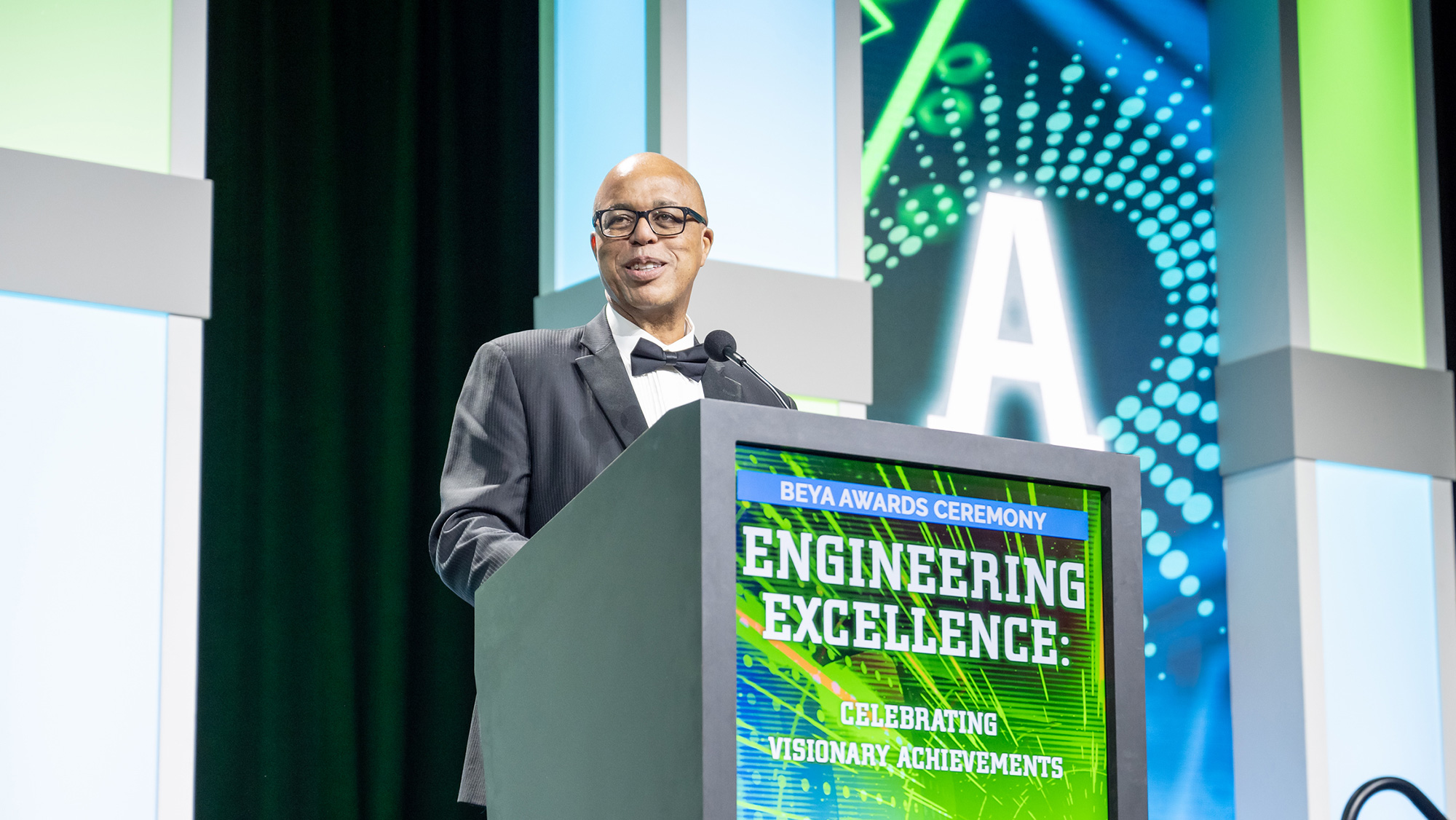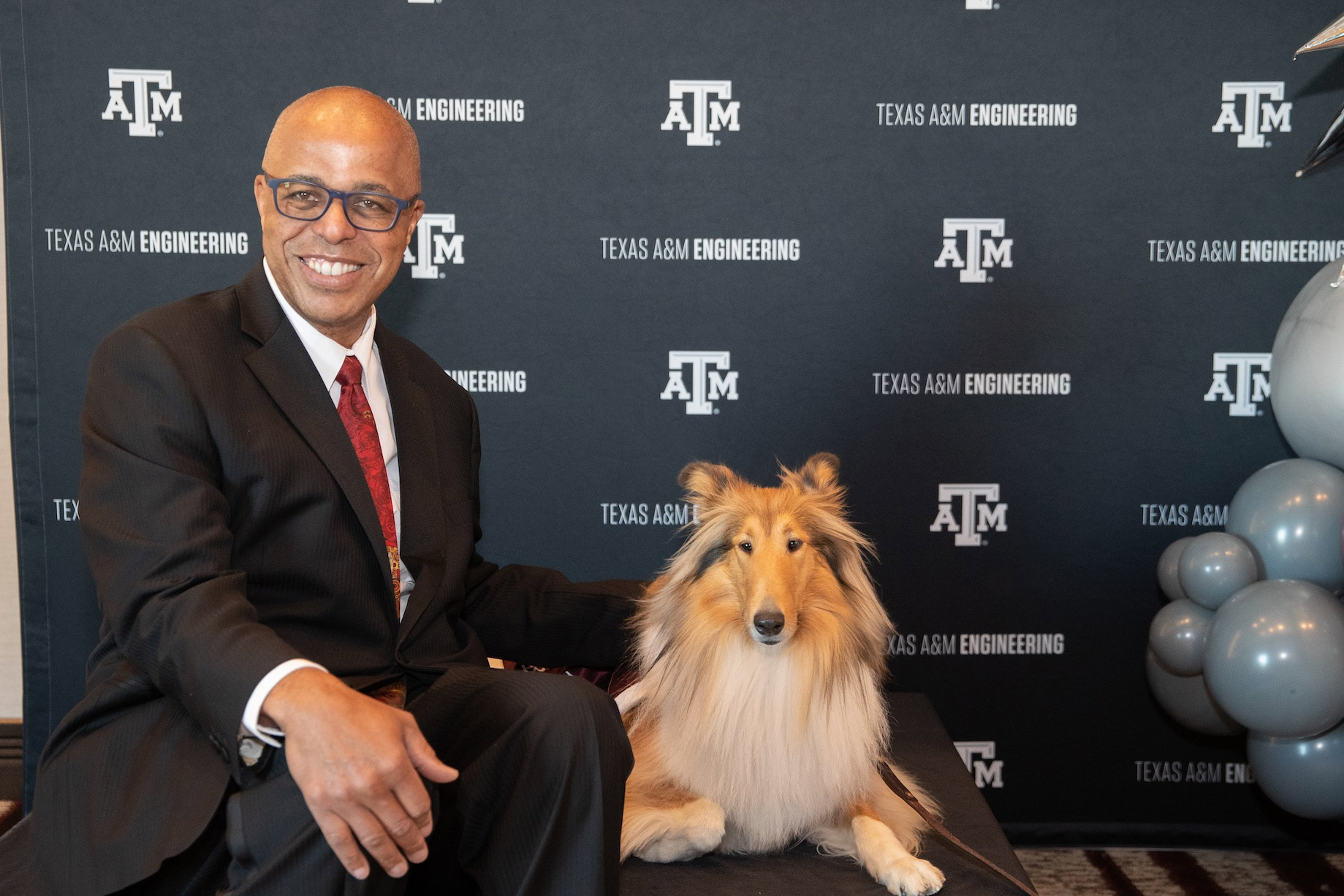
When young Chicago native Ken Washington '82 walked onto the Texas A&M University campus for the first time, he was ready for a challenge. Little did he know he would one day lead advancements in technology that would impact generations, reshaping the relationship between humankind and innovation.
Washington graduated with his bachelor's, master's and Ph.D. in nuclear engineering from Texas A&M in 1982, 1983 and 1986, respectively. Throughout his career he has been integral to technological development, leading in both the private and public sectors. He currently serves as the chief technology and innovation officer at Medtronic, a medical technology firm that delivers high-tech solutions to the world's health needs. His dedication to advancing technology and mentoring future engineers earned him recognition as the 2024 Black Engineer of the Year award from Career Communications Group at the 38th BEYA (Be Everything You Are) STEM Conference.
With a goal to further his education, Washington found himself choosing to enroll in Texas' premier nuclear engineering program - Texas A&M. Sitting in his first nuclear engineering lecture with emeritus professor Dr. Ron Hart, Washington knew he was in the right place.
"I just remember feeling like I was home because it was different," he said.
Washington credits Texas A&M and the Department of Nuclear Engineering with giving him the foundation for his success.
We're all Aggies. We're all here driven by a purpose. We may have different majors, but we're all Aggies.
"I've done some pretty awesome things in my career, and that is because Texas A&M equipped me," he said.
As credits were earned and friendships established, Washington fell more in love with the Aggie Spirit and the camaraderie and community amongst the student body. He witnessed a spirit that cannot be explained or replicated.
"The whole environment of A&M was so special because it taught me the value of having community," he said.
Washington found a sense of community both on campus and beyond with fellow students living in his apartment complex.
"We're all Aggies," he said. "We're all here driven by a purpose. We may have different majors, but we're all Aggies."
From learning how to play the guitar to working through homework together, he saw truth in what he had heard across Aggieland: Aggies help Aggies.
After leaving Texas A&M with three degrees and a newfound appreciation for community, Washington joined Sandia National Laboratories to support the development of computational models and high-performance computing systems, serving in a leadership role, he oversaw projects that changed national security.

"I felt really nurtured by the fact that I led the team that built a computer code that the Nuclear Regulatory Commission used for ... ensuring the safety of nuclear power plants," Washington said. He would go on to implement innovative approaches to national security, building the "secret sauce" for the Department of Energy's National Nuclear Security Administration's computers that allowed challenging computations to be performed at reduced cost, which ultimately helped lay the foundation for cloud computing.
Joining mission-driven teams as a visionary changemaker, Washington used the leadership skills he cultivated as an Aggie to foster environments ripe for innovation. At Lockheed Martin, as their first chief privacy officer he led the team responsible for creating Lockheed's privacy policy, which creates security for the company and its partners. Taking his work beyond our atmosphere, he guided those developing a broad array of technologies for space science and national security missions. One significant project that began under Washington's leadership at the Advanced Technology Center was the near infrared camera instrument, which is currently on the James Webb Space Telescope.
Washington's commitment to driving meaningful technological advancements continued at Ford Motor Co. when he joined their team in 2014. Leading the team that designed the electrical architecture found in new Ford vehicles, including the newly launched F-150 Lightning, Washington saw his passion for technological practices translate to meaningful impact for real-world users. His work at Ford ensures that drivers are offered a safe, efficient driving experience.
I felt really nurtured by the fact that I led the team that built a computer code that the Nuclear Regulatory Commission used for ... ensuring the safety of nuclear power plants.
Washington next served as vice president and general manager of consumer robotics at Amazon, further bridging the gap between humans and technology. He led teams responsible for designing technology that is now commonplace in many homes. Leading the consumer robotics unit with Amazon Labs126, Washington's team primarily worked on the development of Astro - a household monitoring robot. Although he is no longer with Amazon, his hard work and diligence led to advances in robotics, a field that has changed how humans live and interact; roughly 71.6 million people have an Alexa product in their home.
Reflecting on his time at Texas A&M, Washington expressed gratitude for the university's role in shaping his purpose driven life.
"It is just embedded in me, the importance of having a core purpose," he said.
Beyond academics, the Aggie Network has been a source of meaningful connections and friendships, serving as an integral part of Washington's journey. These relationships highlight bonds forged through the shared experiences and values that Aggieland defines. The College of Engineering honored him with an Outstanding Alumni Award in 2022.
Of his recognition as 2024 Black Engineer of the Year, Washington wants it to represent how hard work does pay off. He said he hopes to show future engineers that they can chase their dreams and elicit positive change in the world, whether they are a junior listening to a lecture in the Zachry Engineering Complex or an 8-year-old at an engineering summer camp.
"This award is not really about me; it is about my ability to use the recognition as a platform to inspire others," he said.